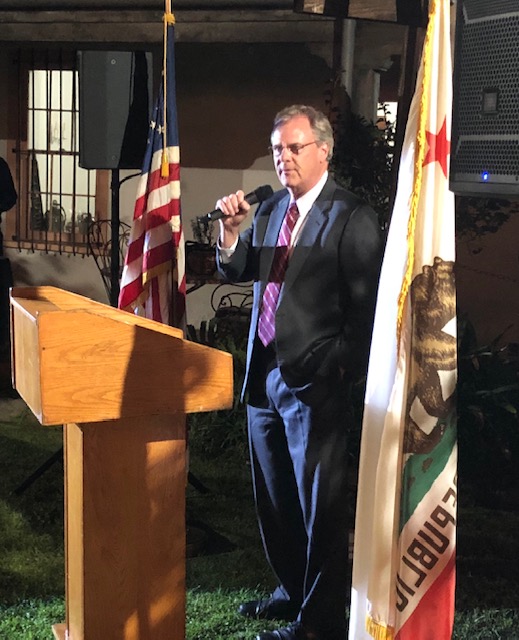By Jim Desmond
I’ve had many people ask me, why is crime on the rise not just in our County, but also in our State? I wrote an op-ed for the Washington Examiner explaining some of the consequences of going soft on crime in California.
You can read the entire op-ed below, for an explanation, but it’s time for solutions. Over the next few weeks, I’m going to work with District Attorney Summer Stephan to close some of these loopholes that criminals are taking advantage of. Public safety has been and will continue to be my top priority!

What happens when you go soft on crime?
When Proposition 47 was passed in California , like most ballot measures, it was misleading. The 2014 ballot measure was called The Safe Neighborhoods and Schools Act. How could someone vote against safe neighborhoods and schools? Eight years later, we are now seeing the negative consequences and opposite effects; instead of keeping our neighborhoods and schools safe, Prop 47 put dangerous criminals back on our streets.
The approval of Prop 47 served to reclassify and downgrade a number of serious crimes . The theory went: Our prisons are overcrowded, and we need to give people a second chance, so we shouldn’t prosecute nonviolent crimes. Drug possession, repeated shoplifting, gun theft, and possession of date-rape drugs (all of which were felonies before Prop 47 was approved) are now classified as misdemeanors, with a penalty of up to one year in jail . However, most often, they result in the issuance of a citation, with no jail time or rehabilitation services.
This is what allowed Justin Flores to be released back out on the streets of Los Angeles County. Flores was arrested in 2020 and charged with possession of meth, a handgun, and ammunition. Prior to that, he had been sentenced to prison twice, including first-degree burglary and vehicle theft. For both crimes, he served less than a year in jail. For his latest charge, Flores pleaded no contest, his charges were dismissed, and he was sentenced to two years of probation. He was ordered not to possess weapons, including guns, ammunition, and knives. Earlier this month, Flores ambushed and killed two El Monte police officers.
In the city of Escondido, in the supervisorial district I represent, Craig Blas was arrested on May 7. Police found 235 fentanyl pills, 3.6 grams of powder fentanyl, 36 grams of meth, a loaded magazine, a handgun, and baggies intended to sell drugs. Blas is no stranger to the law — this was the 10th time he had been arrested since 2020. In 2020, he was arrested seven times on similar charges of drug possession and weapons possessions. In 2021, he was arrested for drugs, weapons, and the suspected sale of narcotics. Blas, like many criminals, knows the loopholes of the law. By pleading no contest, he was able to evade prison time because his offenses were deemed “nonviolent.”
Blas’s criminal history is eerily similar to that of Flores, whose crimes were also deemed nonviolent — until he murdered two El Monte police officers. We can’t wait for someone to murder police officers before we deem them dangerous. There’s clearly something wrong with the law.
The consequences of Prop 47 and Assembly Bill 109 have allowed situations like this to take place. AB 109 resulted in the ongoing transfer of criminals who should be serving longer-term prison sentences in state prisons for felony convictions to county jails. County jails were never designed to house violent criminals for extended periods of time, and county jails were already overcrowded before AB 109 was approved. AB 109 also resulted in the release of tens of thousands of convicted criminals back into our community. Attempted murder, burglary, domestic violence, elder abuse, battery with serious bodily injury, terrorist threats — all of those charges previously resulted in time in California’s state prison system, but they now make offenders eligible for early release under AB 109.
I’ve spoken to many law enforcement officers who feel they have their hands tied. They are trying to enforce the law, arresting dangerous criminals, only for them to be let out days later or, in many cases, cited and released immediately.
I believe in second chances, but being arrested 10 times in a little over two years is well beyond a second chance. Laws in Sacramento continue to put the public in danger and tie the hands of our brave law enforcement officers. Criminal groups know this and are taking advantage of it.
Stories such as those of Craig Blas and Justin Flores are unacceptable, but politicians have gone soft on crime in California and adopted policies and laws that favor criminals over the safety of our communities and neighborhoods. It is time for reform.
San Diego County District 5 Supervisor Jim Desmond
http://www.supervisorjimdesmond.com/


















